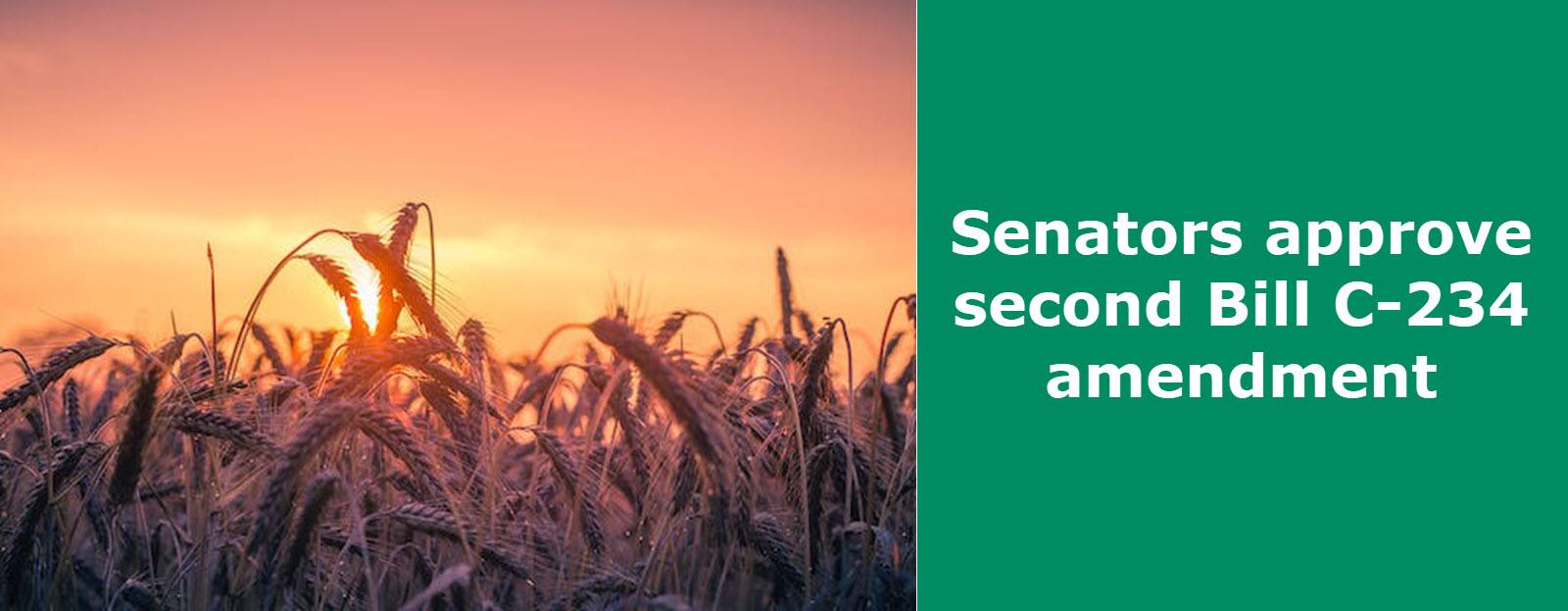
On Dec. 11, senators voted 44-40 in support of Senator Yuen Pau Woo’s amendment, which changes the bill’s sunset clause from eight years to three.
This means that three years after the bill receives royal assent, whichever party in government can decide whether to extend the legislation.
When Sen. Woo introduced the amendment on Dec. 7, he argued that the three-year sunset clause aligns Bill C-234 with the federal government’s carbon price exemption on heating oil.
With this recent amendment passed, the bill returns to the House of Commons, where MPs will debate it.
The first change to the bill removes the carbon tax exemption for barn and building heating.
Senate supporters of Bill C-234 are concerned the legislation won’t receive the time it needs. Because it’s a private member’s bill, the government can decide when to bring it up for debate.
“The Senate has passed a gutted Bill #C234, sending it back to the House of Commons where it could die through the process,” Sen. David Wells, who sponsored the bill in the Senate, said on X. “Although Canada’s on-farm grain dryers are one step closer to much-needed relief from this unfair tax, it is another insult to Canada’s farmers, ranchers and growers who need to heat/cool their barns and efficiently run their greenhouses.”
Farmers are concerned, too.
Producer groups are urging MPs to reject the amendments.
Lawmakers need “to pass the legislation as originally agreed upon,” Kyle Larkin, executive director of Grain Growers of Canada, said on X.
Gunter Jochum, President of the Wheat Growers Association, issued the following statement, “The federal government claims it wants to reduce the price of groceries and yet continues to increase the carbon tax, which only adds to the cost of everything that is needed to plant, harvest, process and ship our groceries to the shelf. This hypocrisy is shocking. “
The National Farmers Union (NFU), which supports carbon pricing, is also calling for the House to support Bill C-234.
Farmers can do their part to minimize emissions, but that requires investment. The carbon tax takes potential investment dollars out of farmers’ pockets.
“The NFU recognizes that farmers can improve building efficiency and switch heating sources to clean technologies like heat pumps, but these renovations are capital intensive, and farmers will need extensive financial support to decarbonize the heating of barns and greenhouses,” Glenn Wright, former vice president of the NFU and a Sask. farmer, said in a statement.

